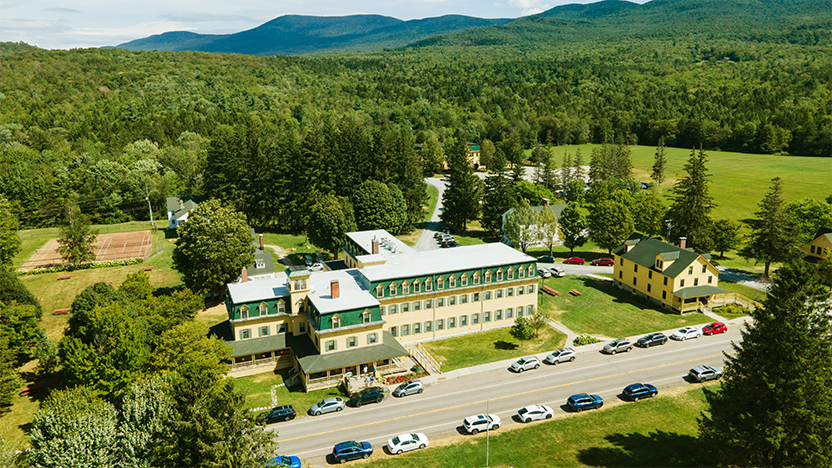Alumni College

Join old friends and new in this beloved Middlebury tradition!
Return to Learn at the 50th Anniversary of Alumni College!
Learn from some of the College’s finest faculty while enjoying camaraderie with fellow alumni, delicious meals, and spectacular views on our Bread Loaf campus. Save the date for Wednesday, August 26–Saturday, August 29, 2026*. Check this page for updates as we prepare for the 50th Alumni College!
*Please note that Alumni College classes will start on a Wednesday and end on a Saturday this year, which is different than in previous years. Participants may register to arrive early on Tuesday for an additional fee.
Event Highlights
- Courses taught by some of Middlebury’s finest instructors
- Movie night!
- Cocktail reception and celebration of the 50th Anniversary of Alumni College
Pricing
| With Lodging | Without Lodging | Tues Arrival w/Lodging |
|---|---|---|
| $650 | $525 | $725 |
ADA Accommodations
The Disability Resource Center (DRC) provides a range of supportive accommodations for students with disabilities at Middlebury. For ADA accommodations, please reach out to the DRC staff at ada@middlebury.edu.
Questions?
Email us at alumni@middlebury.edu or call the Alumni Office at 802-443-5183.

